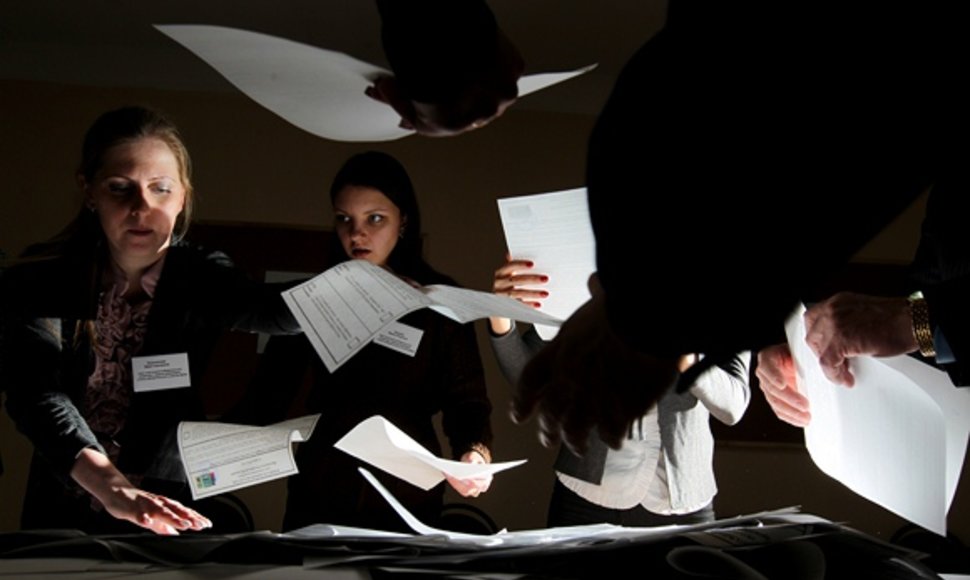Leader of the Communist Party, Gennady Zyuganov, won 10.9 percent of the vote, business mogul Mikhail Prokhorov received 8.7 percent, leader of the Liberal Democratic Party of Russia, Vladimir Zhirinovsky, won 2.6 percent, and the Fair Russia party's candidate Sergey Mironov got 1.3 percent of the vote.
In all, 4,661 Russian citizens voted in Lithuania, and the number is 70 percent higher than the turnout during the State Duma elections last year.
Putin won almost 64 percent of all votes, according to Sunday's exit-polls .
The overall turnout is reported to have been higher than during previous presidential elections. Even though Putin got a secure majority, there are significant variations from region to region.
Putin appears to have fewest supporters in Russian metropolises of Moscow and Saint Petersburg. According to preliminary results, only 47.06 percent of Muscovites voted for Putin - an overwhelming 20-percentage-point drop from the 2004 election.
In his home city Saint Petersburg, Putin won 58.78 percent of the vote which is also significantly less than the 75 percent in 2004.
Putin was more successful in remote regions in Siberia and Caucasus, where his share of the vote exceeds 90 percent. These are also places of relative unrest, with the federal government imposing draconial measures to oppress any opposition.
Skewed results
International observers have voiced their concern that Russia's presidential election was "clearly skewed" in favour of the winner, Vladimir Putin.
Amid claims of widespread fraud, the Organization for Security and Co-operation in Europe (OSCE) urged Russia to carry out a thorough investigation.
Opposition activists are gathering in Moscow and other cities for protests.
A Facebook page advertising the rally in the capital at 7 PM local time has received nearly 9,500 pledges to attend - a number much smaller than at opposition gatherings after the December parliamentary election.
In a statement on the OSCE website, the monitors said that while all candidates had been able to campaign freely, there had been "serious problems" from the start.
"The point of elections is that the outcome should be uncertain," said Tonino Picula, co-ordinator of the OSCE mission.
"This was not the case in Russia. There was no real competition and abuse of government resources ensured that the ultimate winner of the election was never in doubt."
Longing for democracy
A high voter turnout during the presidential elections in Russia shows the Russian society is longing for democracy, Lithuanian Minister of Foreign Audronius Ažubalis says.
"A relatively high turnout is a consolation. It demonstrates that the Russian society is longing for democracy and is ready to strive ever more actively for the changes that are necessary for the state," Ažubalis said.
"It is important that the changes in the society which started last year after the Russian Duma elections on 4 December did not halt," he said. His comments were communicated to BNS by the Ministry of Foreign Affairs' Public Information Division.
Ažubalis also stressed that "conclusions of international monitors from the OSCE and the Council of Europe point to the insufficient transparency of the Russian presidential election and systematic flaws in the election procedures."
"Whatever the election results are, Lithuania will continue to seek dialogue based on mutual respect and is ready to develop relations that would benefit the peoples of both countries," the Lithuanian Minister of Foreign Affairs underlined.












